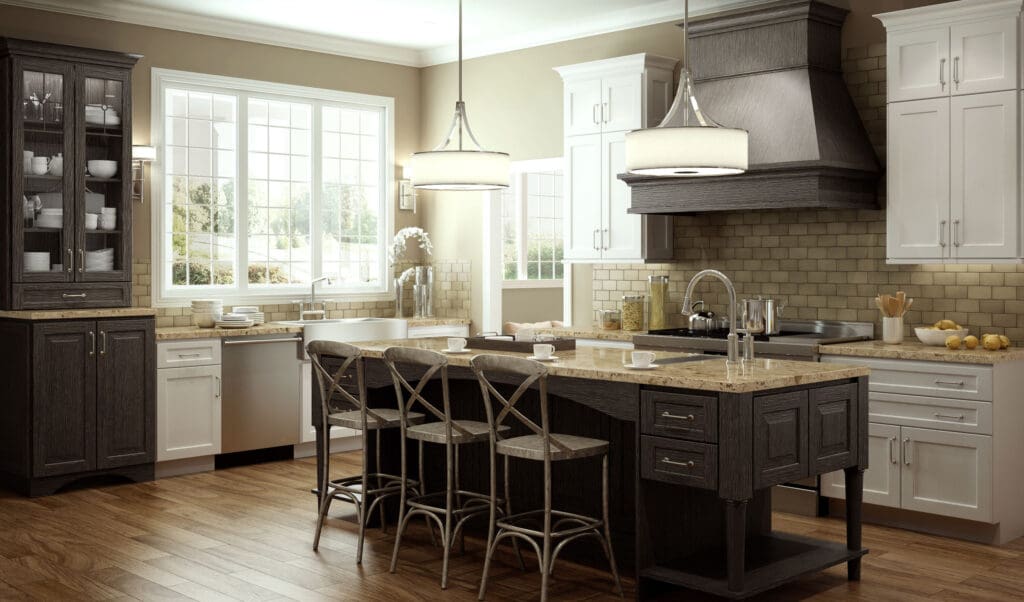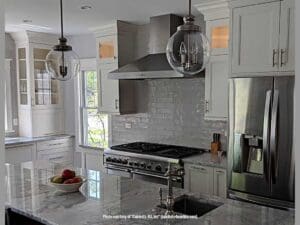Which Countertop Thickness Works Best for Different Materials: Laminate, Marble, Quartz?

Countertop thickness isn’t just a technical detail. It directly affects how comfortable your work surface will be and how long it will last. Laminate, marble, and quartz each have different requirements. Let’s take a closer look at what average countertop thickness really means.
How thick is a laminate countertop?
For laminate, the most common thickness is 1.5 inches. It’s a practical choice: strong enough, lightweight, and affordable. Thinner versions—about ¾ inch—do exist, but they need a solid base underneath. The thickness of kitchen countertops made of laminate should be comfortable for everyday use, especially if you regularly place cookware or appliances on them.
Marble countertop thickness: which option is more reliable?
Marble countertops are usually ¾ inch or 1¼ inches thick. The thinner version (¾ inch) looks more delicate but requires additional support. If you're aiming for strength and durability, 1¼ inches is a better choice. That marble worktop thickness is more than enough for a kitchen where daily cooking is the norm.
What are the quartz countertop thickness options?
Quartz countertops also typically come in two sizes—¾ inch and 1¼ inches. Thinner versions work well for sleek, modern designs and need to be mounted on a base. Thicker slabs look more substantial, don’t require extra support, and handle more weight. Consider both the aesthetics and how you plan to use the surface.
What is the standard counter thickness?
The industry standard ranges from 1¼ to 1½ inches. This applies to most materials—granite, quartz, marble, and laminate. That modern countertop thickness fits standard cabinets and appliances and doesn’t require custom modifications during installation.
Does the thickness of kitchen countertops depend on the design?
Yes, design plays a role too. In minimalist kitchens, thinner countertops (¾ inch) are often preferred. In more traditional interiors, thicker slabs tend to look better. You should also think about the length of any overhangs—like for a breakfast bar. The longer the overhang, the thicker the slab should be.
Conclusion
When choosing the thickness, consider the material, visual impact, and how you use your kitchen. The average countertop thickness—around 1¼ inches—works well for most projects. The marble countertop thickness or quartz can vary, depending on your layout and design preferences. The key is finding the right balance between style, strength, and function.
Read more:
2 cm vs. 3 cm: Choosing the best countertop thickness for your kitchen?
Best Cleaners for Quartz Countertops: What to Use and What to Avoid










